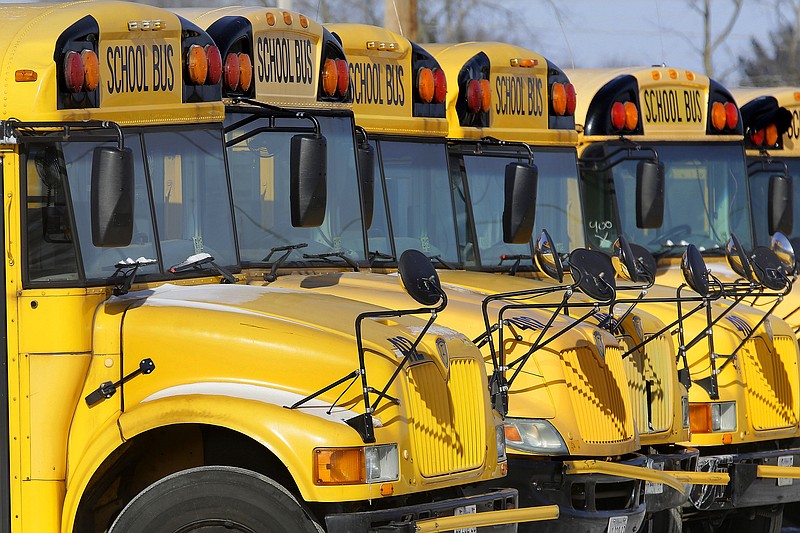President Joe Biden signed a bill over the weekend championed by Sen. John Boozman and others that aims to ensure students continue to have access to meals this summer as pandemic-era child nutrition assistance ends.
Pandemic-related federal aid that made school meals free to all public school students regardless of family income levels ends Thursday, though children will still be able to get meals this summer.
Schools nationwide are facing a 35% to 40% increase in food costs related to supply chain and inflation issues, according to a news release Monday from Boozman's office. The Keep Kids Fed Act will provide a "temporary increase in reimbursement rates and no-cost flexibilities for the 2022-2023 school year to help return to regular school meal operations," the release said.
The new funding will allow schools and summer meal providers to continue delivering food to children. Summer meal distribution sites offering meals to go can operate in communities that demonstrate a need and aren't limited to districts with a higher concentration of lower-income students.
The funding will also provide flexibility to schools, so institutions can make substitutions for certain types of food without facing fines if they are faced with supply chain issues.
The bill was introduced last week by Sens. Boozman and Dennie Stabenow, D-Mich., from the Senate Committee on Agriculture, Nutrition, and Forestry, as well as Bobby Scott , D-Va., and Virginia Foxx, R-Mich., from the House Committee on Education and Labor.
"As I visit with Arkansas school nutrition professionals, it is quite clear they need continued flexibilities to manage ongoing supply chain issues," Boozman said in the release. "We all want to ensure children receive healthy and affordable meals to help them focus on their education. This bill will help schools provide those meals as they return to normal operations."
The measure passed less than a week before rules adopted during the pandemic allowing all public school students to eat school meals for free and allowing summer meal distribution sites to operate were set to expire, June 30.
Families will soon apply for their children to receive free or reduced price school meals based on income levels, as it was before the pandemic. Schools in largely lower-income areas will again be able to serve school meals for free as well.
Families are already strained by rising food and fuel prices and participation in USDA school meal programs has grown significantly.
About 30 million children per day were getting free meals during the most recent school year, compared to 20 million before the pandemic, administrator of the USDA Food and Nutrition Service Cindy Long told The Associated Press.
There were 1.3 billion meals and snacks given out at summer meal distributions nationwide in fiscal year 2020, which cost $1.4 billion; an eight-fold increase from the previous year in terms of cost and meals, the USDA said.
Agriculture Secretary Tom Vilsack said in a statement last week he was pleased Congress has taken action to support the USDA's child nutrition programs.
"The deal passed by Congress will ease some of the uncertainty and provide partial relief to our schools, summer sites and child care feeding programs," Vilsack said. "As I have said before, it is important to note that schools across the country will still face ongoing challenges and at USDA, we will continue to use every tool at our disposal to ensure kids get the nutritious meals they need and deserve."
